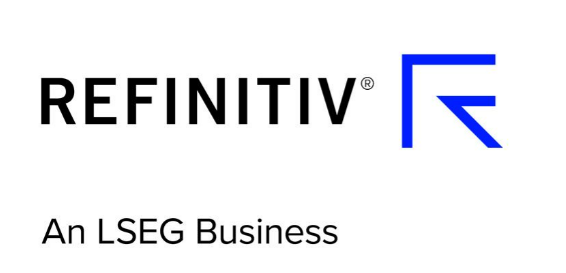Fund Objective:
The Fund aims to provide capital growth (to grow the value of your investment) over at least five years. The Fund invests primarily (at least two-thirds) in the shares of companies based in, registered in, or with major business activities in emerging markets (countries that have less developed economies) which the Investment Manager considers to be leaders in their respective markets. These are companies that typically show leadership through: ? structural growth; ? competitive advantages and a strong financial position; and ? sustainability considerations (as described in the Sustainability Approach below). Structural growth typically means the company shows above-average revenue growth over at least five years, through offering products and/ or services that benefit from transformations (e.g. in technology, consumption, decarbonisation, healthcare) in their market or region. Investment opportunities are identified using in-depth analysis and research on individual companies. The Fund may at times invest in a relatively small number of companies (i.e. have a concentrated portfolio). These companies may be of any size and in any industry sector. The Fund may also invest in other transferable securities, money market instruments, cash or near cash, deposits, up to 10% in units or shares in other funds (which may be managed by a Ninety One group company, or a third party) and derivatives (financial contracts whose value is linked to the price of such shares). Derivatives may be used for managing the Fund in a way that is designed to reduce risk or cost, generating income or growth with a low level of risk and/or, occasionally, for investment purposes. Sustainability approach This product does not have a UK sustainable investment label. This product evaluates the sustainability of the companies it invests in but does not have a specific sustainability goal. It does not, therefore, meet the criteria under the FCA’s Sustainability Disclosure Requirements for a Sustainability label, which helps identify products with specific sustainability goals. The Investment Manager seeks companies it believes to be leaders in their industry sectors and geographies in their approach to sustainability. Based on the Investment Manager’s sustainability framework, these companies have policies, operations and/or business models that aim to manage their harmful effects on society and the environment, or whose products and/or services seek to benefit society and the environment. To evaluate the sustainability of companies the Fund invests in, the Investment Manager applies its own sustainability framework as part of its in[1]depth analysis. This considers the following: ? Sustainability-linked structural growth: an assessment of whether the company benefits from exposure to structural growth areas (e.g. technology, consumption, decarbonisation, healthcare). These growth areas can create opportunities for the company to generate value for stakeholders. ? Externalities: an assessment of positive and harmful effects on the environment and/or society. The Investment Manager will favour companies that run their businesses for the benefit of all stakeholders – society, the environment and its employees, or companies that it considers to have business models and/ or targets in place to manage the reduction of material harmful effects on its stakeholders. ? Carbon emissions targets: an assessment of the company emissions reduction plans and how these are evolving. The Investment Manager has targets associated with the proportion of companies setting a carbon reduction pathway target. Specifically, the Fund aims for 100% of the companies it invests in to have set credible science-based emissions targets (i.e. SBTi or equivalent approved emissions reduction plans) by 2030 or sooner. Engagement is an important element of the Investment Manager’s investment process and believed to be a powerful tool to effect change. The Investment Manager will engage with companies on material financial, sustainability and governance issues and areas where room for improvement are identified. Metrics you may find useful: The following sustainability indicators will be reported at least annually: ? percentage of holdings with credible net zero emissions targets, e.g. science-based targets (SBTi); ? percentage of holdings, where applicable, contributing to the following environmental and/or social themes: ? decarbonisation; ? financial inclusion; ? digital inclusion; ? access to education; ? healthcare impact; and ? climate adaption; ? percentage of companies invested in the business groups or activities (in some cases subject to specific revenue thresholds) prohibited under the Fund’s exclusions criteria. Exclusions The Fund does not invest in companies that derive more than 5% of their revenue from the following business activities (to the best of the Investment Manager’s knowledge): ? the sale of tobacco products; ? thermal coal power generation; and ? the exploration, production and refining of oil and gas. The Fund does not invest in companies that: ? are directly involved in any activities related to controversial weapons (including biological and chemical weapons, cluster munitions and anti-personnel landmines); ? are directly involved in the manufacture and production of nuclear weapons, inert ammunition and armour containing depleted uranium, or any other industrial uranium, and weapons containing white phosphorus; ? increase the production of, or capacity for, thermal coal related products/services or thermal coal-based power generation; ? are involved in any activities related to the manufacture of tobacco products; ? derive more than 1% of their revenues from the exploration, mining, extraction, distribution or refining of hard coal and lignite; ? derive more than 10% of their revenues from the exploration, extraction, distribution or refining of oil fuels; ? derive more than 50% of their revenues from the exploration, extraction, manufacturing or distribution of gaseous fuels; ? derive more than 50% of their revenues from electricity generation with a GHG intensity of more than 100g CO2 e/kWh; ? increase the production of, or capacity for, unconventional oil and gas products/services; or ? the Investment Manager deems to be in violation of the UN Global Compact principles or Organisation for Economic Cooperation and Development (OECD) Guidelines for Multinational Enterprises. More exclusions may be added in the future. These will be disclosed on the Investment Manager’s website as they are introduced and then added to this Prospectus at the next opportunity.


